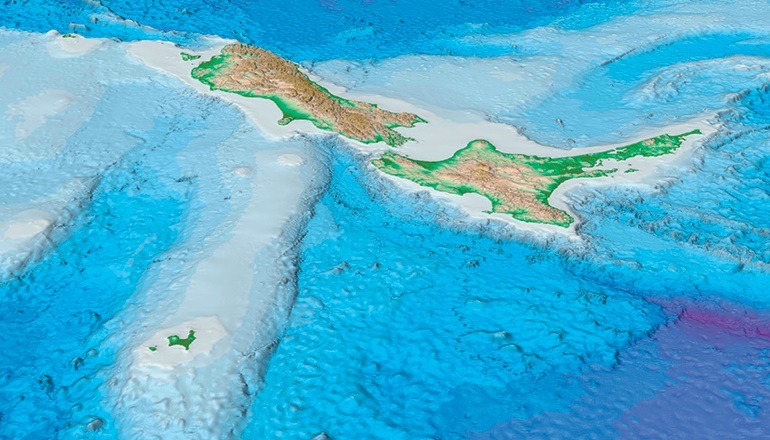The EEZ Act needs fixing says Straterra, after the Environmental Protection Authority declined Chatham Rock Phosphate’s seabed mining application.
“The decline of Chatham Rock Phosphate’s marine consent application to mine rock phosphate from the ocean floor sends a strong negative signal to investors seeking to do business in New Zealand,” says Straterra chief Chris Baker.
“Our initial reading of the decision supports our review of last year’s negative decision on the Trans-Tasman Resources iron sands mining application.
“The legislation has major flaws which must be amended if we are to see responsible mining projects being developed.
“The intent of the Exclusive Economic Zone and Continental Shelf (Environmental Effects) Act is to provide for responsible economic development in the EEZ. However, the Act’s requirements for information and consideration of uncertainty mean that any mining proposal would likely be declined.
“What mining investor is going to be brave enough to test that in the future?”
BusinessNZ points out that Chatham Rock Phosphate invested $33 million in its bid to meet EPA requirements for the enterprise. It may be impossible to achieve such consents under the current framework, he adds.
BusinessNZ chief Phil O’Reilly says the EPA might have carried out its mandate in good faith, but the framework itself is flawed.
“The laws governing resource permits and consents offshore and the law governing consents onshore are seriously standing in the way of economic growth.
“There is a critical need for improvement of these laws governing resource development. The whole issue of permitting and consenting needs reform.
“In the Chatham Rock case, as with the previous Trans-Tasman Resources case, one part of government has issued a mining consent, while another part of government has declined access to the resource. This is an absurd situation.
“The framework is effectively operating as a ban on new, innovative activities with uncertain impacts – yet all new activity has some element of uncertainty.
“What companies will now risk investing millions of dollars to create jobs and grow the economy given New Zealand’s apparent ban on offshore mineral resource development?”
In Chatham Rock Phosphate’s case, the Decision-making Committee (DMC) appointed by the EPA board, concluded that mining would cause significant and permanent adverse effects on the existing benthic environment on the Chatham Rise. This included communities dominated by protected stony corals which were potentially unique to the Chatham Rise and which the DMC concluded were rare and vulnerable ecosystems.
The authority says that despite the applicant’s efforts to research and substantiate its case, the DMC was left with a lack of certainty about the receiving environment and the adverse effects of the proposal on the environment and existing interests. In these circumstances the DMC was required by the legislation to favour caution and environmental protection when making its decision.
The DMC had also concluded that the economic benefit to the country of the proposal would be modest at best.
The application by Chatham Rock Phosphate attracted 294 submissions with the DMC holding public hearings in Wellington, Hamilton and the Chatham Islands.
The decision was the third to be made by the EPA on a publicly notified application for a marine consent. An application by OMV NZ to continue development drilling at its Maari field on the South Taranaki Bight was granted in December 2014. An application by Trans-Tasman Resources (TTR) to carry out an iron sand mining project in the South Taranaki Bight was refused in June last year. TTR appealed the decision but later abandoned the court proceedings.
The Environmental Protection Authority is a government agency that took over functions from various government departments (Ministry for the Environment, the Ministry of Economic Development, the Environmental Risk Management Authority and the Ministry of Foreign Affairs and Trade) in July 2011. It was set up by the National Government under the Resource Management (Simplifying and Streamlining) Amendment Bill 2009. In May 2011 it passed its final reading in Parliament by 63 votes to 59 with support from National, the Maori Party and United Future. The Act Party withdrew its support after Treaty of Waitangi provisions were added to garner support from the Maori Party.
The EPA Establishment Board is chaired by former Wellington Mayor Kerry Prendergast.


Parting words from Jeremy Sole- a final column